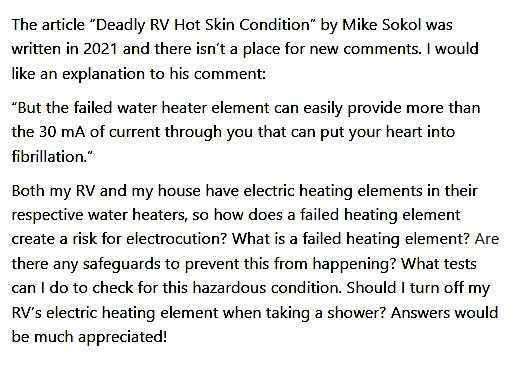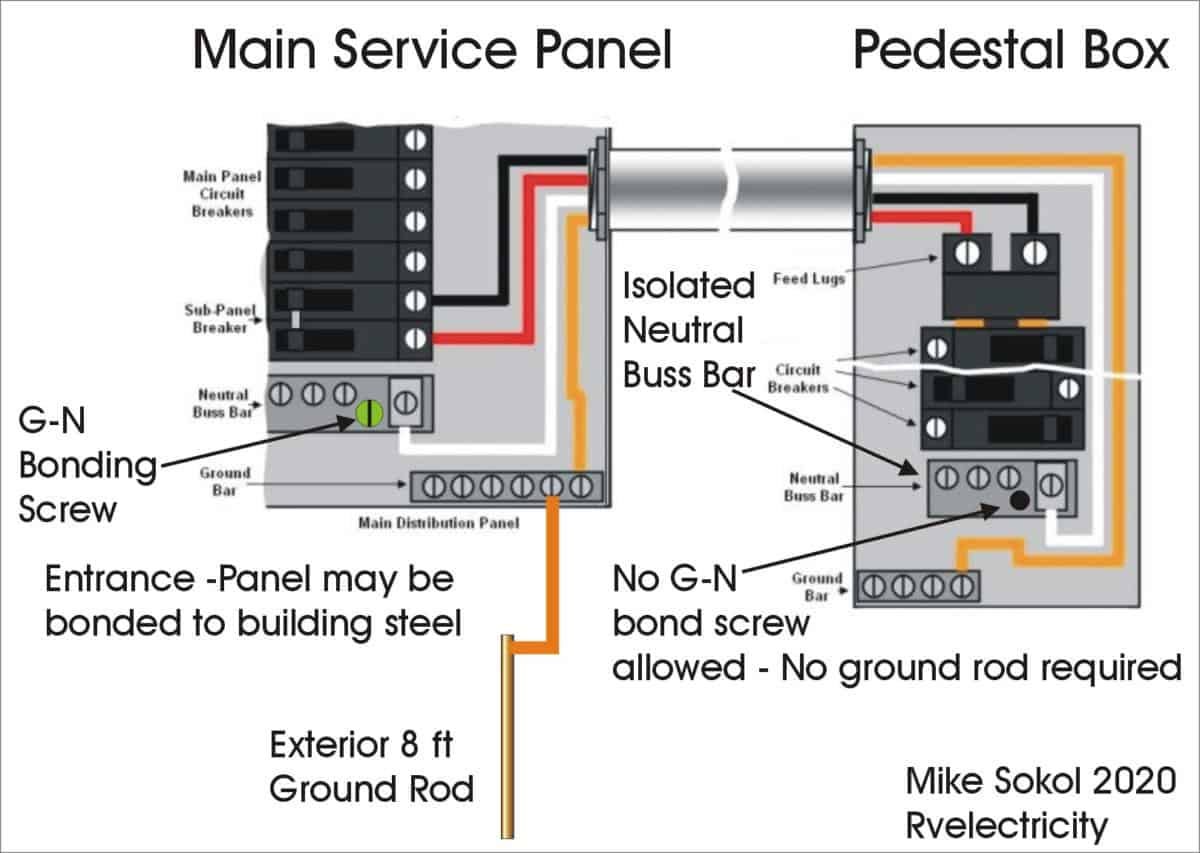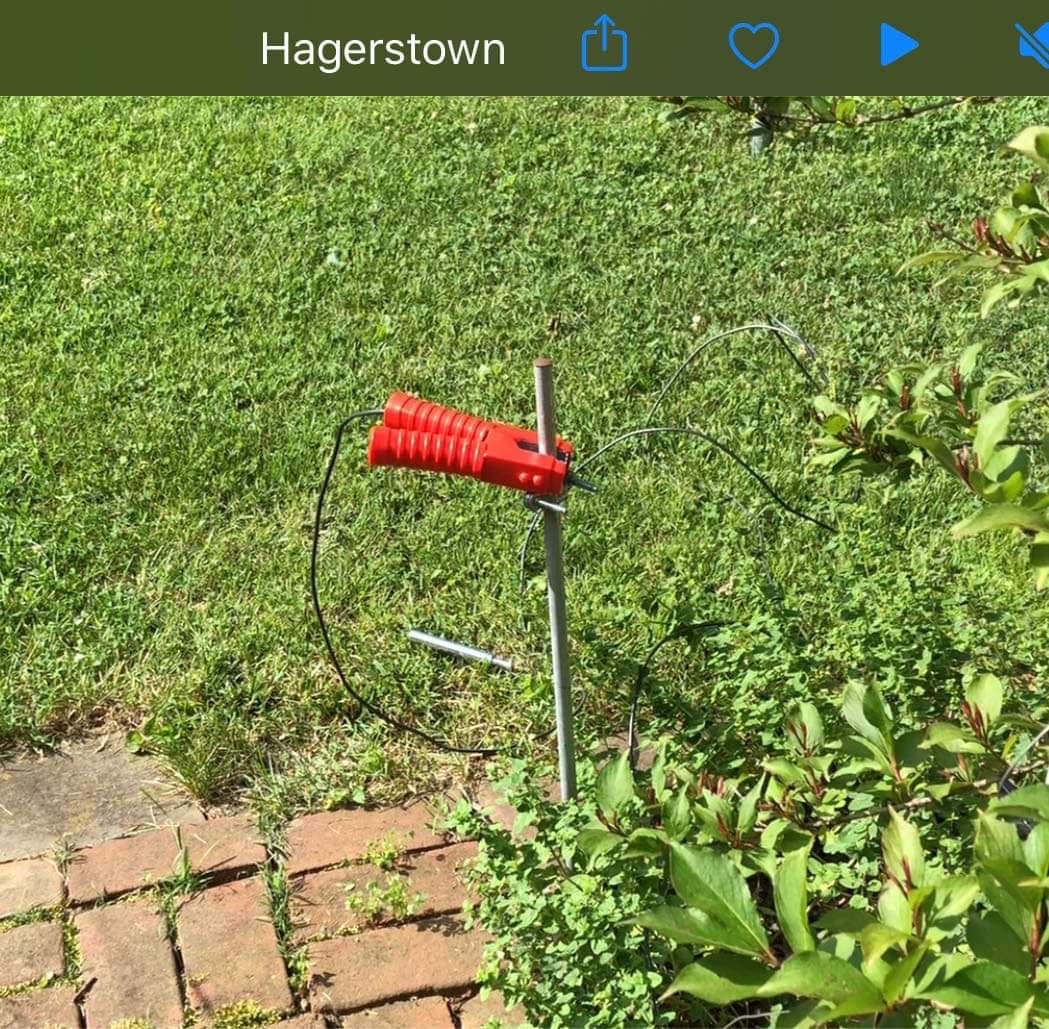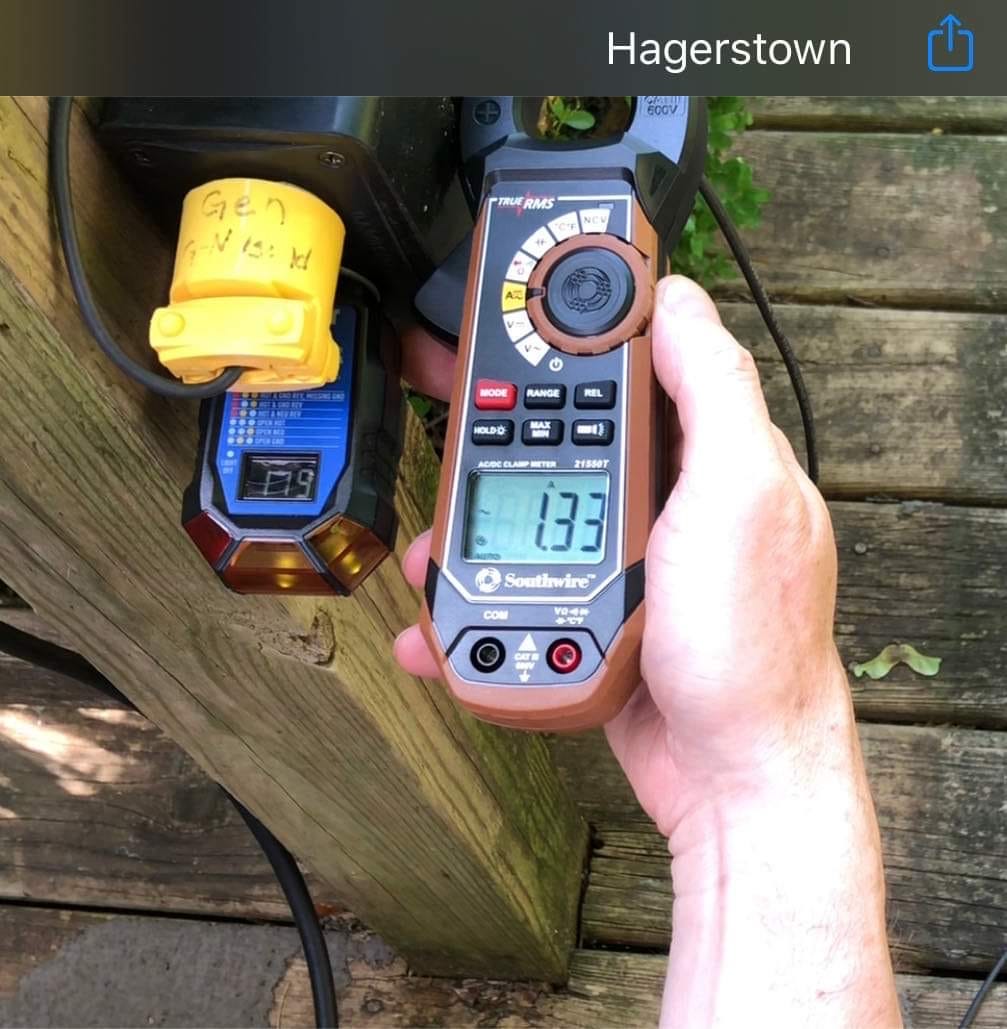Is my home water heater a shock hazard?
No it isn't, but here’s why your RV water heater can cause a dangerous shock.
Everyone,
Here’s a question I was just sent from RVtravel about an article I wrote in 2021 describing how a failed electric water heater element can provide enough leakage current to kill you from electrocution. See below for the comment.
The reader is worried that this possible shock condition also applied to their residential electric water heater, but that’s simply not the case.
Residential water heaters should be safe from shock
That’s because the electric water heater in your basement is bonded to the incoming electrical service panel by its metallic plumbing in older homes, and by its electrical wiring grounding conductor in modern homes with PVC plumbing. So it should be perfectly safe even if the electric element corrodes and develops a leak.
What’s the danger?
What happens is that the heating element can become corroded and spring a leak, allowing water to directly contact the nichrome wiring inside. Water contacting the live wiring can allow several amperes of current to flow into the tank. I know the numbers because I set up an experiment and measured them myself. It’s up to the grounding system to keep you safe from shock.
Is an ungrounded RV is risk?
Yes it is. If the ground conductor in your RV’s shore power connection is lost going to the service panel’s neutral bond, then any fault current can turn into a hot skin voltage. And a failed electric water heater element can easily provide amperes of available fault current through the chassis and skin of the RV.
Will a ground rod on my RV help?
No it won’t. And that’s because the earth is a pretty poor ground. Take a look!
Here’s pictures of a ground rod experiment I did in the back lot of my FunkWorks Lab last year. I used an 8 ft ground rod with 120 volts connected to it which only caused 1.33 amps of fault current to flow. And that’s far short of the current needed to trip the circuit breaker quickly. It will be able to provide this small fault current indefinitely without tripping the breaker. This calculates out to around 90 ohms ground impedance which is pretty common. The earth is a pretty poor ground.
Here’s what a dead short circuit looks like.
As you can see, a properly bonded ground wire will create in excess of 100-amps of fault current which will trip the circuit breaker in a few milliseconds. And yes, those are real sparks bouncing around. Kids don’t try this at home. I did this experiment in my FunkWorks Lab using all safety precautions.
Wrap up
Your home electric water heater should not be able to shock you in the shower. However, an RV electric water heater with a damaged heating element can create a hot-skin voltage if your shore power ground connection is lost. And no, adding a ground rod to your RV won’t help reduce that shock hazard.
Let’s play safe out there… Mike











Mike,
Great article! I somehow missed it when it was published in RVtravel in 2021.
This is clearly a potentially very serious issue. Are you aware of any injuries or deaths due to a corroded heating element?
I may have missed this in another thread, but as to the question of whether you could be shocked *through contact with the water* by a faulty RV water heater element and the idea of turning off the 110V switch for the heater, I didn't see that mentioned in the answer. If one were in contact with ground and the water at the same time, it would seem the potential for a shock exists, assuming the faulty element and poor grounding of the RV electrical system.